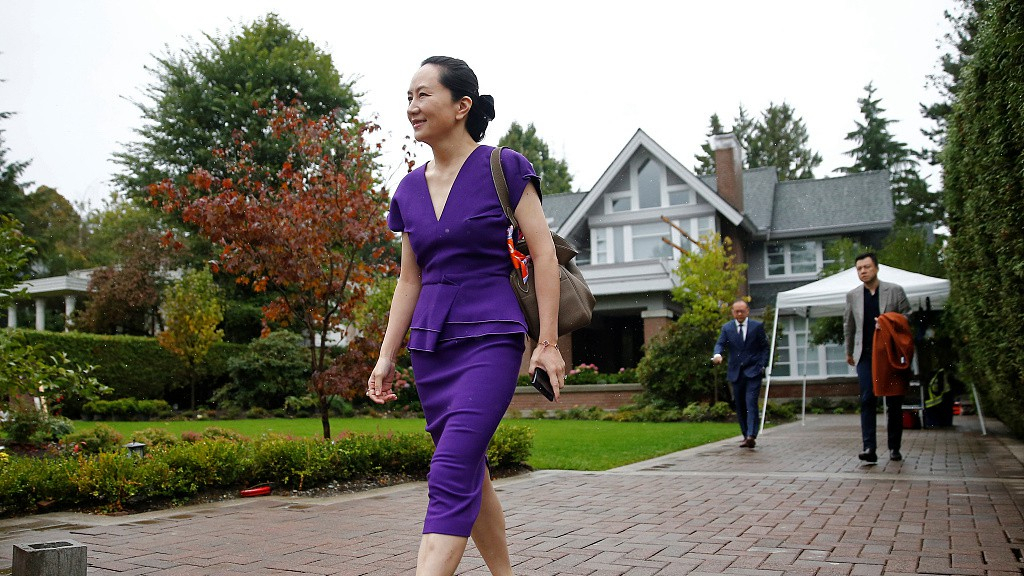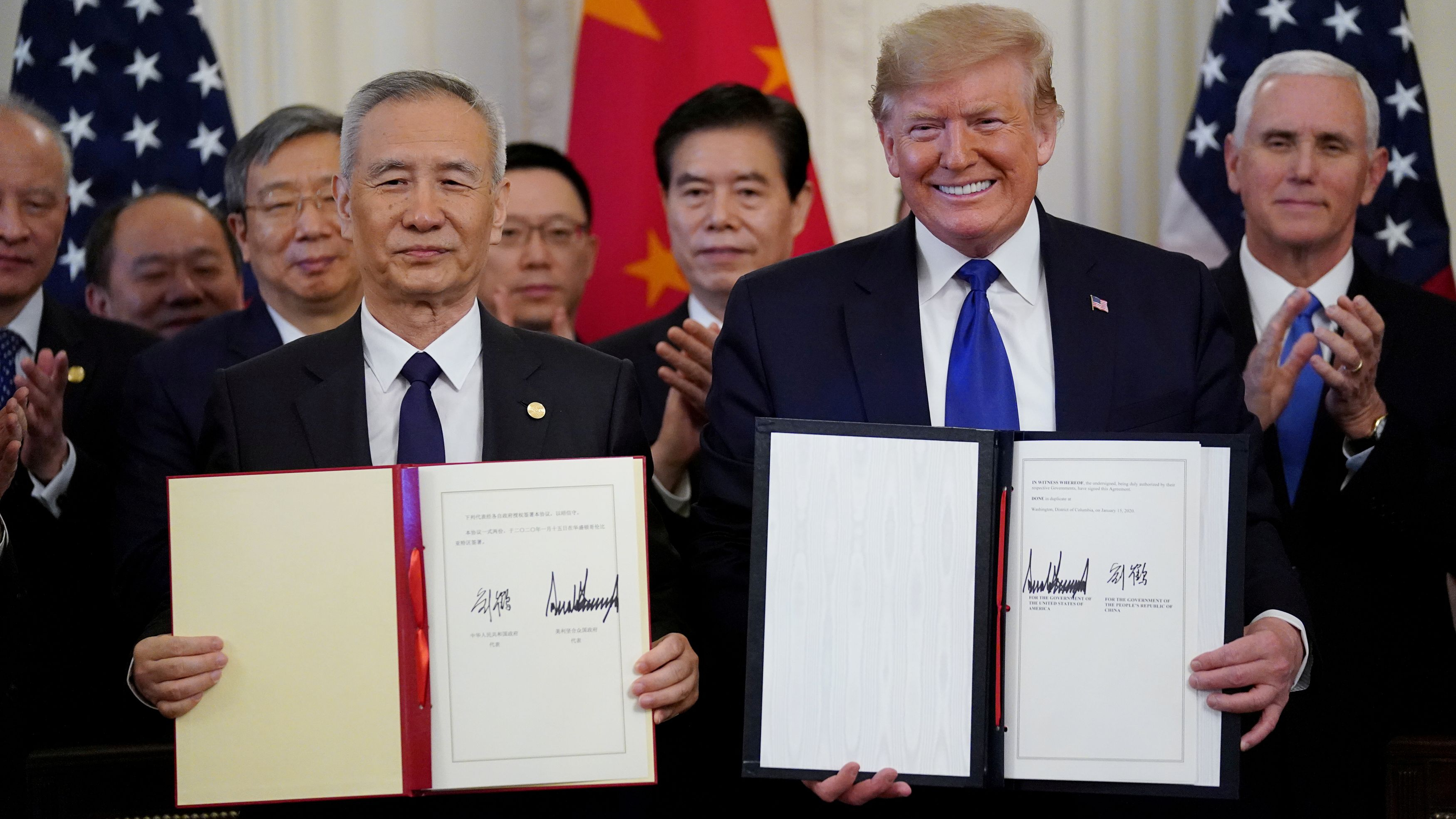Editor's note: Kong Qingjiang is the dean of the School of International Law at the China University of Political Science and Law. The article reflects the author's opinions, and not necessarily the views of CGTN.
China and the U.S. signed a phase one trade deal as a substantial step towards the ending of the trade war which was launched by the Trump administration in early 2018.
It has been reported that China raised the issues of U.S. ban of Huawei from acquiring U.S. technology and the detaining of the tech giant's CFO Meng Wanzhou by Canada at the U.S. request. It was also speculated that the U.S. might use release of Meng as a bargaining chip in trade negotiations with China,
Unfortunately, one has reason to believe that the trade deal will offer limited relief to Meng's release.

Huawei CFO Meng Wanzhou leaves her home to appear for a hearing at British Columbia supreme court, in Vancouver, British Columbia, Canada, September 23, 2019.
Huawei CFO Meng Wanzhou leaves her home to appear for a hearing at British Columbia supreme court, in Vancouver, British Columbia, Canada, September 23, 2019.
Firstly, from purely legal point of view, the phase one trade deal did not make reference to Huawei or Meng at all. Given that federal criminal prosecutions are outside the scope of the agreement, no U.S. concession on Meng's release is understandable, although Trump himself once said that he would consider make concession on Huawei should China agree to the U.S. request on trade issues.
Secondly, the behavior of the Trump administration has been consistent in dealing with China on the national security issue. As the U.S. has clearly targeted China as a rival, it has been seen to spare no effort to contain China in the field of advanced technology.
U.S. State Secretary Pompeo had been persuaded relentlessly its allies and other countries not to use the Huawei products in their 5G networks. As a matter of fact, just before the signing of the trade deal, there were reports that the Trump administration planned to impose new rules barring sales of foreign-made goods to Huawei.
While the current regulation subjects to the U.S. jurisdiction the foreign goods with U.S. contents of 25 percent and above, the reported rule is going to lower the local content requirements, thus tightening the restriction on Huawei in acquiring U.S. technology.
In this regard, it is useful to remind the consistent behavior is also accountable for that fact that no concessions were made by U.S. negotiators on the Meng prosecution in the phase one trade deal.
Thirdly, the trade deal has triggered criticism among Trump's political opponents. In the eyes of the politicians who have a more aggressive policy towards China than Trump, the phase one deal means that the Trump administration has given up legitimate claims made in the past three years.
Under domestic political pressure, it is likely that the Trump administration will keep up its own pressure on China. Against this backdrop, the release of Meng would be politically incorrect. It's very likely that Washington's move will be in line with its hard-line stance on Huawei and Meng.

Chinese Vice Premier Liu He stands with U.S. President Donald Trump after signing China-U.S. phase one economic and trade agreement in the East Room of the White House in Washington, U.S., January 15, 2020. /Reuters Photo
Chinese Vice Premier Liu He stands with U.S. President Donald Trump after signing China-U.S. phase one economic and trade agreement in the East Room of the White House in Washington, U.S., January 15, 2020. /Reuters Photo
Fourthly, Canada's role in the Meng case of course cannot be underestimated. Canadian Prime Minister Trudeau has been reported as complaining that the phase one trade deal between the U.S. and China failed to address its concern about the release of two Canadians, Michael Kovrig and Michael Spavor, who were detained and prosecuted by the Chinese authorities.
Moreover, Canada failed to respond positively to China's good will in lifting the ban on Canadian pork imports, which was obviously a window of opportunity for a détente between the two nations.
Therefore, there has been no mutual trust to speak of. In this context, unless the U.S. opts to withdraw its request to extradite Meng, and as long as China insists on its stance to indict the two Canadian suspects in accordance with its law, it would be difficult for Canada to defer to the U.S. request to extradite Meng.
Canada would instead prefer the issue to be handled in the name of judicial independence and refrain from actively intervene in a carefully designed and lawful manner.
It will be a personal misfortune for Meng if the upcoming trial fails to result in her release.
(If you want to contribute and have specific expertise, please contact us at opinions@cgtn.com.)